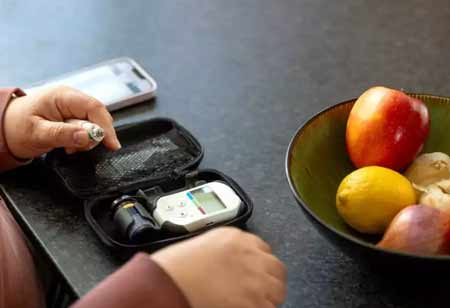Practical Strategies to Control Post-Meal Blood Sugar
It is crucial to keep track of your blood sugar levels when managing diabetes. Nevertheless, dealing with increased blood glucose after eating, referred to as "postprandial" blood glucose, can present difficulties.

By
Medical Care Review | Sunday, August 28, 2022
Stay on top of your health and well-being with exclusive feature stories on the top medical clinics and treatment centers, expert insights and the latest news delivered straight to your inbox. Subscribe today.
It is crucial to keep track of your blood sugar levels when managing diabetes. Nevertheless, dealing with increased blood glucose after eating, referred to as "postprandial" blood glucose, can present difficulties. This article details blood sugar spikes, concerns, and handling blood sugar spikes.
Fremont, CA: Monitoring your blood sugar levels is essential when managing diabetes. However, addressing a spike that occurs after meals, known as "postprandial" blood glucose, can be challenging. By setting a few simple strategies, you can effectively manage these spikes and reduce the risk of potential health complications.
Why Should You Be Concerned About It?
Elevated blood sugar levels can cause symptoms such as a clouded mental state, which may hinder your ability to concentrate or think clearly. Additionally, you may experience a significant drop in energy, accompanied by feelings of anxiety or irritability.
Conversely, if your blood sugar levels fall too low, there is a risk of fainting. Prolonged high blood sugar can increase the possibility of developing severe health issues, including heart disease, stroke, kidney disease, and other complications.
How to Measure Your Spikes?
The American Diabetes Association (ADA) advises individuals to measure their blood sugar levels immediately before meals using a blood sample taken from a finger prick. Subsequently, it is recommended to perform another measurement 1 to 2 hours after the initial food consumption. This practice should be maintained for approximately one week. It is essential to document the time and corresponding blood sugar readings. Additionally, note any factors influencing your levels, such as medications or physical activity. Furthermore, record the foods consumed, including portion sizes and carbohydrate content.
Blood sugar levels can vary significantly after a meal, and experts have differing opinions on an acceptable range. However, the American Diabetes Association (ADA) recommends that a general target is to maintain blood sugar levels below 180 mg/dL one to two hours post-meal. It is advisable to consult with your physician regarding your specific targets, and any adjustments to your medication should only be made after discussing them with your healthcare provider.
How to Handle After-Meal Spikes?
Get Medicine That Works For You:
An appropriate insulin or medication regimen can significantly impact health outcomes. Typically, medications that address post-meal spikes—those that act rapidly and for a brief duration—are more effective than those that operate slowly over an extended period. It is advisable to consult your physician for a detailed explanation of your available options.
Keep Blood Sugar In Check Before Meals:
This approach ensures the increase will be less significant even if you're defenseless after eating.
Watch What You Eat:
It is advisable to restrict the consumption of sweets, white bread, rice, pasta, and potatoes, as these foods are known to increase blood sugar levels after meals.
Eat Breakfast Every Morning:
Refrain from forgoing breakfast, even when time is limited. Research indicates that individuals with diabetes who skip this meal experience more significant increases in blood sugar levels following lunch and dinner.







